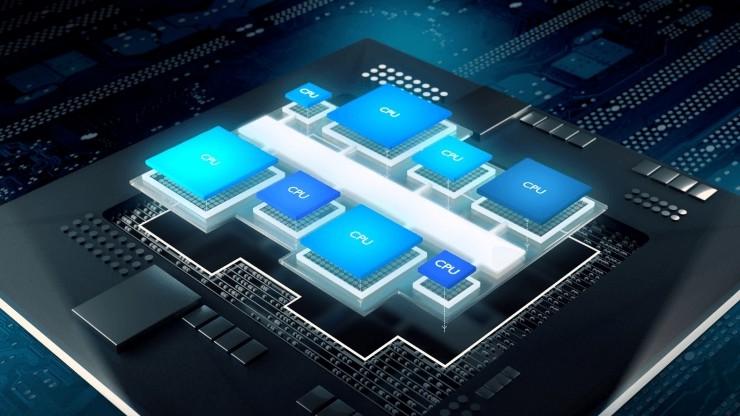Qualcomm Returns to the Server Processor Market
01 Qualcomm's Server Layout Initiatives
Qualcomm, a global leader in mobile processor manufacturing, is actively building a team dedicated to the development of server SoCs. From job postings, the company is recruiting key positions such as "Server System on Chip (SoC) Security Architect." Moreover, Qualcomm's data center team is committed to developing high-performance, energy-efficient server solutions for data center applications. They plan to develop a reference platform based on Qualcomm Snapdragon SoC, covering a comprehensive range of content including hardware, software, reference designs, user guides, and SDKs.
In terms of talent, Qualcomm has attracted the joining of Sailesh Kottapalli, the former Chief Architect of Intel's Xeon, who now serves as Senior Vice President. Kottapalli worked at Intel for 28 years and was one of the core figures in Intel's server chip design. His addition brings a wealth of server chip design experience to Qualcomm.
At the same time, Qualcomm's server CPU will adopt the Nuvia core based on the Arm architecture, which is seen as a strong challenge to the server market dominated by the x86 architecture. The Nuvia core has achieved significant success in the mobile chip field with its outstanding performance and energy efficiency ratio. Qualcomm expects to apply it to server chips to break the existing market pattern.
02 Market Potential and Historical Background
Qualcomm is not the first time attempting to enter the server chip market. As early as 2016, Qualcomm launched the Centriq series of server CPUs. However, due to the relatively weak Arm server ecosystem at that time, as well as challenges such as patent lawsuits and hostile acquisitions faced by Qualcomm itself, this business was eventually forced to be abandoned in 2018. However, with Qualcomm's successful acquisition of Nuvia and the launch of the Snapdragon X series AI PC chips, its technical strength and market experience in the server processor field have been significantly enhanced.
Currently, the market share of servers based on the Arm architecture has exceeded 10%, and the ecosystem is becoming increasingly perfect. Unlike PC products, the server market does not completely rely on the x86 application ecosystem, which provides more opportunities for Arm architecture manufacturers like Qualcomm. The successful application of Amazon's Graviton processor in the data center field has proved that solutions based on the Arm architecture have huge market potential. This has also prompted Qualcomm to re-examine its strategy and decide to return to the data center processor market.
03 Future Outlook
Qualcomm's return will not only bring a new competitive landscape to the server processor market but also promote technological innovation and market diversification. Qualcomm has full-stack control capabilities from hardware to software, giving it a certain competitive advantage in this market. The first devices to adopt Qualcomm's data center processors may be its 5G platforms, and will eventually expand to the 6G base station field.
This strategic move by Qualcomm will not only help it achieve a breakthrough in the data center market but also further reduce its dependence on the smartphone market and expand its business map in the field of technology. As Qualcomm's layout in the server processor market gradually unfolds, we can expect to see more high-performance, energy-efficient server solutions based on Qualcomm technology in the coming years.
Conevo Electronics Solutions
Conevo Elec is a semiconductor component distributor, providing rich and diversified ic resources. Also, Conevoelec have a professional sales and technical team. In CONEVO, you can quickly find item BOM related electronic chips. Here are some popular IC chip choices.
1. The ST72F264G2M6 is an 8-bit microcontroller from STMicroelectronics, designed for mid-range applications with ADC, I2C, and SCI interface capabilities. It features an industry-standard 8-bit core with an enhanced instruction set. The device includes 8KB of program memory (single voltage extended Flash with read-out protection, write protection, and In-Circuit Programming and In-Application Programming capabilities), 256 bytes of RAM, and supports up to 16MHz operation.
2. The Intel EP4SE230F29I4N is a high-performance Field Programmable Gate Array (FPGA) from the Stratix IV E series, designed by Intel. This FPGA features 9120 Logic Array Blocks (LABs) and 488 I/Os, making it suitable for complex digital circuit designs. The device is designed to operate with a supply voltage ranging from 0.87V to 0.93V and can function within a temperature range of -40°C to 100°C (TJ).
3. The Toshiba Semiconductor and Storage TB62209FG,EL is a high-performance stepping motor driver IC designed for precise motion control. It features a PWM chopper type drive mechanism and integrates a decoder for CLK input in micro steps, facilitating the driving of two-phase stepping motors using micro-step pseudo sine waves. This IC is optimal for driving stepping motors with low-torque ripples and at low oscillation, ensuring high efficiency and smooth operation.
Website: www.conevoelec.com
Email: info@conevoelec.com









